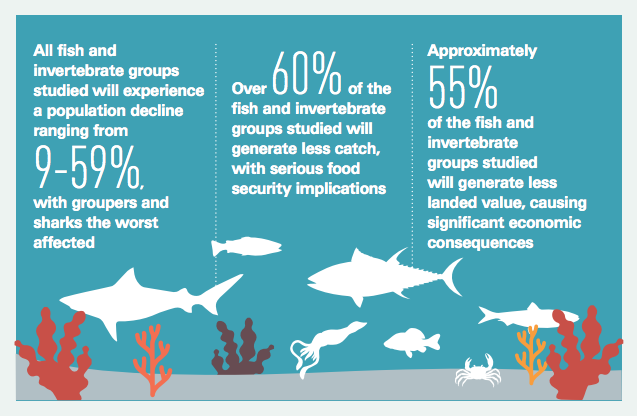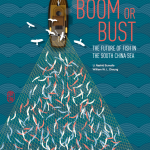“Boom or Bust: The Future of Fish in the South China Sea” has been published by William Cheung, Director of the Nereus Program (Science), and Rashid Sumaila, Research Director of the OceanCanada Partnership (UBC), for the OceanAsia project.
Introduction:
Asia’s oceans are home to some of the richest and most diverse fisheries in the world and the South China Sea (SCS) is no exception. Its fish resources are crucial world for food security, supporting coastal livelihoods and export trade, yet they are threatened by pollution, coastal habitat modification and excessive and destructive fishing practices.
In 2015 the University of British Columbia Fisheries Economic Research Unit and Changing Ocean Research Unit undertook to outline the threats to the SCS and determine what its marine ecosystems, fisheries and seafood supply may look like in the next 30 years under different climate change and management scenarios.
The following presents a summary of the research and finds that if business continues as usual, (status quo scenario) by 2045 compared to now the following
is likely to occur:

By contrast, under a sustainable management scenario, by 2045 there will be a significantly positive impact on biodiversity relative to business as usual. In order to achieve this, catch of about 63% of the animal groups will have to decrease.
READ MORE: William Cheung






